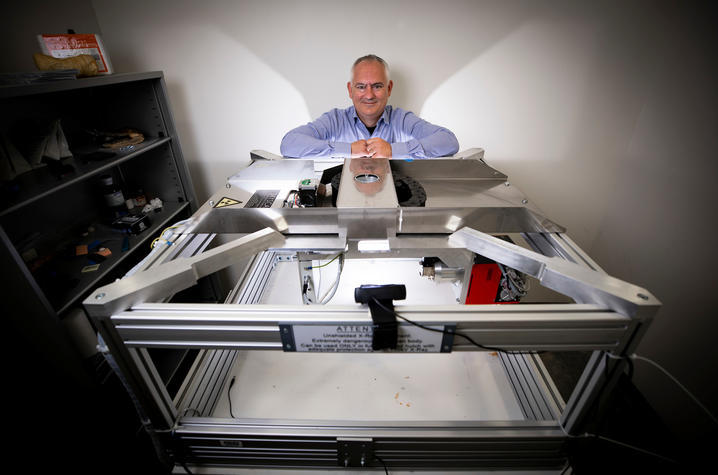
Brent Seales leads the EduceLab team. A College of Engineering computer science professor, Seales is an internationally known expert in digital restoration of cultural heritage objects. Pete Comparoni | UK Photo.
By Alicia Gregory Tuesday 4/19/2022; UKnow
LEXINGTON, Ky. (April 19, 2022) — It’s the signature on a bourbon barrel. It's the ancient footprints in Mammoth Cave. Heritage science is all around us and has deep roots in the Commonwealth. Kentucky’s story begins in prehistoric times, when mammoths roamed the Ohio River Valley at Big Bone Lick.
In November 2021, the University of Kentucky announced a new $14 million mid-scale infrastructure grant from the National Science Foundation, that will allow UK to tell that story in new, groundbreaking ways through the lens of heritage science.
For more than 20 years, Brent Seales, UK Alumni Professor in the Department of Computer Science, has been working to create and use high-tech, non-invasive tools to rescue hidden texts and restore them to humanity. Dubbed “the man who can read the unreadable,” he has garnered international recognition for his “virtual unwrapping” work to read damaged ancient artifacts — such as the Dead Sea Scrolls and Herculaneum papyrus rolls — without ever physically opening them.
Now, expanding on his research, Seales is positioning UK as a regional leader in heritage science. He gathered a team of experts from the College of Engineering and the College of Arts and Sciences to build EduceLab. This collaborative user facility will focus on developing innovative artificial intelligence (AI) solutions for the unique challenges presented by cultural heritage objects.
“The word educe means ‘to bring out from data’ or ‘to develop something that is latent but not on its own explicit.’ That’s what we’ve been doing with our virtual unwrapping work. And that context has created an opportunity to expand the very focused question of, ‘Can we read what’s inside a scroll?’ to a broader question of, ‘What heritage science questions can we answer right here in Kentucky?’" Seales explained. “My goal is to rally some of the best researchers here around that theme and build a world-class laboratory that allows us to pose and then answer some of those questions.”
In this two-part “Research Made Possible” podcast, we take a deeper dive into EduceLab. In part 1, we meet the College of Engineering faculty (Brent Seales, Suzanne Smith, Corey Baker and John Balk), who share the impact of NSF funding, what this new equipment will allow researchers to explore and how they will partner with the community to answer new questions. In part 2, we meet the anthropologists (Hugo Reyes-Centeno and George Crothers) in the College of Arts and Sciences, learn about the Webb Museum where EduceLab is based, and find out how this grant will impact their research, UK student learning and career opportunities.
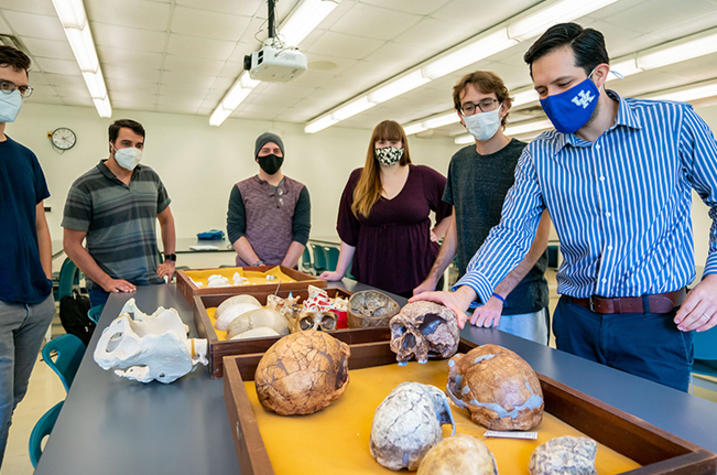
(From left) James Keppeler, Daniel Benitez, Marcus Rodriguez, Leah Blair, Bruno Athie Teruel and Anthropology Assistant Professor Hugo Reyes-Centeno examine artifacts from his human fossil record research. Ben Corwin | Research Communications
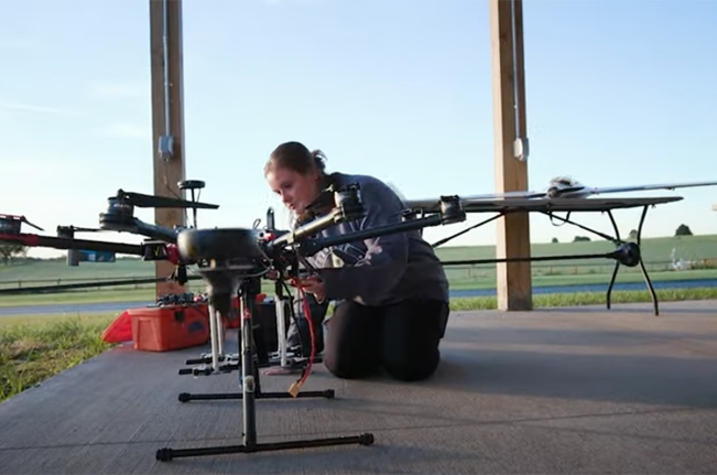
Margaret Bush, who earned her B.S. in mechanical engineering in December 2020, preps an unmanned aerial vehicle (UAV) in a project with her mentor Sean Bailey in the College of Engineering. Courtesy of College of Engineering
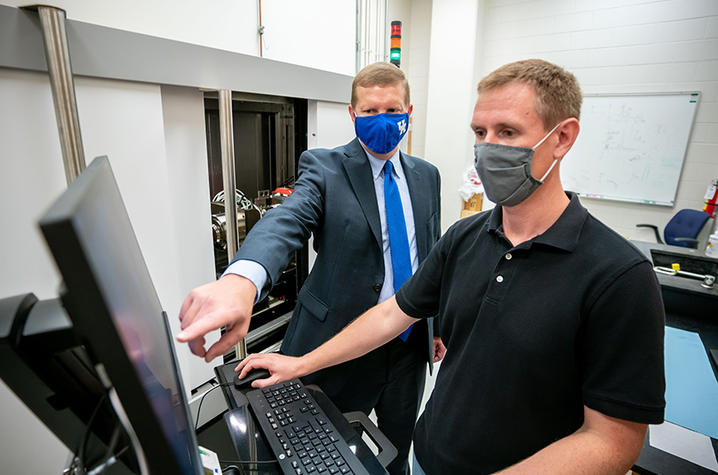
John Balk (left), the William T. Bryan Professor of Materials Engineering and director of the Electron Microscopy Center (EMC), with EMC staff member Nico Briot. Ben Corwin | Research Co
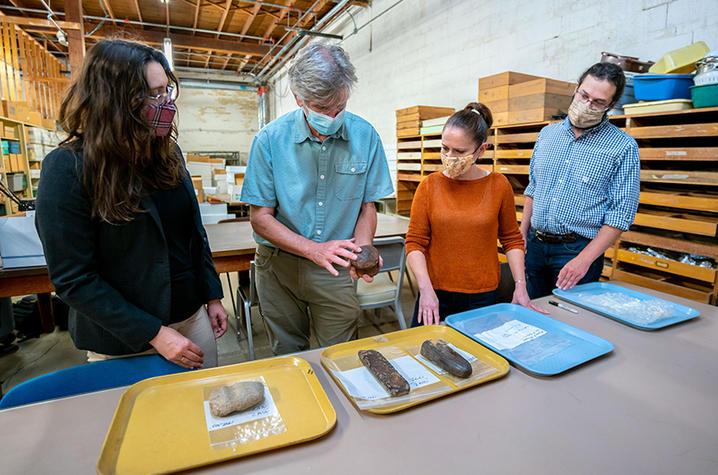
(From left) Postdoctoral Scholar Katharine Napora, Webb Museum Director George Crothers, Museum Curator Lisa Guerre and Graduate Student Alex Metz discuss the grooved maul Crothers is holding. Ben Corwin | Research Communications.
